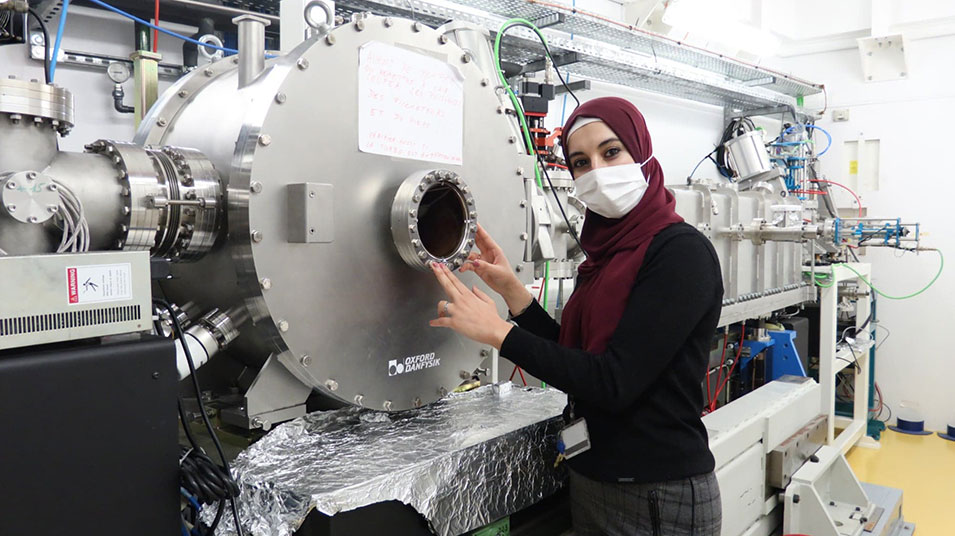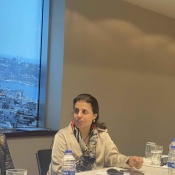Tasneem Saleem, Birzeit University physics alumna, leads pioneering research on particle detectors in Europe
How does one become a post-doctoral researcher at one of the most cutting-edge particle accelerators in Europe? If you’re Tasneem Saleem, your answer would probably involve hard work, dedication, and years of research and training at Birzeit University and other international institutions.
Tasneem, who currently researches particle detector development and high-energy simulations at the SOLEIL synchrotron near Paris, France, began her career in physics at Birzeit University. In 2008, she enrolled in the physics bachelor’s program after graduating high school with an excellent GPA.
At Birzeit, Tasneem nurtured her love for physics with the help of her colleagues and instructors. She excelled in her BA courses, volunteered in labs and extra-curricular activities, and tutored her classmates in her free time.
For her efforts, Tasneem was awarded with a scholarship to pursue a master’s degree in physics at Birzeit University. As part of her assistantship, she forged stronger relations with peers nationally and internationally and worked with esteemed and renowned professors of physics such as Dr. Wafaa Khater and Dr. Henry Giacaman.
A year and a half into Tasneem’s master’s degree, a group of physicists and academics associated with the International Centre for Theoretical Physics’ Physics Without Frontiers program visited Birzeit University. They met with members of the university’s faculty and discussed bolstering academic cooperation with European universities and academic departments.
Tasneem attended the visiting professors’ discussions and seminars and was so impressed with the particle-physics research projects they’ve highlighted that she decided to apply for a master’s degree scholarship at Université Paris-Saclay.
“When I decided to apply for a masters’ degree in France, my professors were the first to support me and offer their help in the application and approval process,” said Tasneem, adding that Khater, who chaired the physics department then, and Giacaman, who was her master’s thesis supervisor at Birzeit, supported her decision to gain knowledge and experience abroad.
New research opportunities
At Université Paris-Saclay, Tasneem completed a master’s degree in elementary particle physics, graduating with flying colors and directly transitioning to a Ph.D. program. For her Ph.D. dissertation, she researched how to improve detectors at CERN’s Large Hadron Collider, the biggest and most powerful particle accelerator in the world.
Tasneem’s doctoral thesis uniquely mixed theoretical and applied research. As part of her dissertation, she looked at how radiation affected particle sensors and investigated how the particles themselves behaved according to theoretical models, while also using this data to calibrate and improve the sensors.
After years of grueling work and participating in international experiments and collaborations, such as the Atlas experiment, Tasneem was able to devise two novel methods of detecting radiation damage in silicon detectors.
As of Early 2021, Tasneem has published as principal or co-author more than 300 papers in international peer-reviewed journals. She is also an active student-community leader, heading the university’s association of Ph.D. students.
Future ambitions
Despite her long and established career in French and European research institutions, Tasneem still longs for Palestine and her family. While her research activities require specialized tools and equipments which aren’t currently available in Palestinian universities, she hopes to come back one day and encourage cooperative research in science, especially physics, between Palestinian universities and between local and international higher education institutions and research centers.
Addressing young female students, Tasneem said that challenges are a normal part of life, doubly so for women in science and traditionally male-dominated fields. With perseverance and dedication, however, women can excel in whichever field they choose to join, she added.







